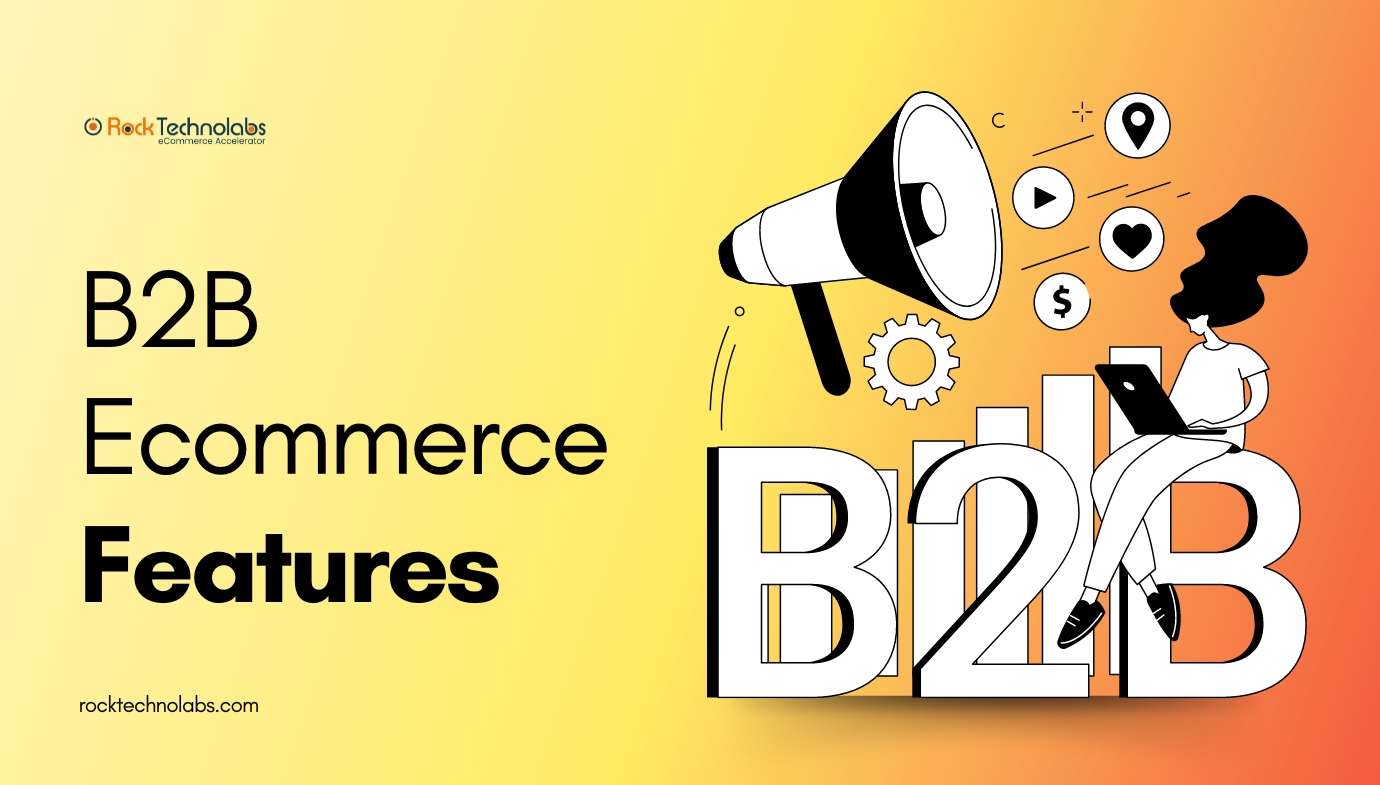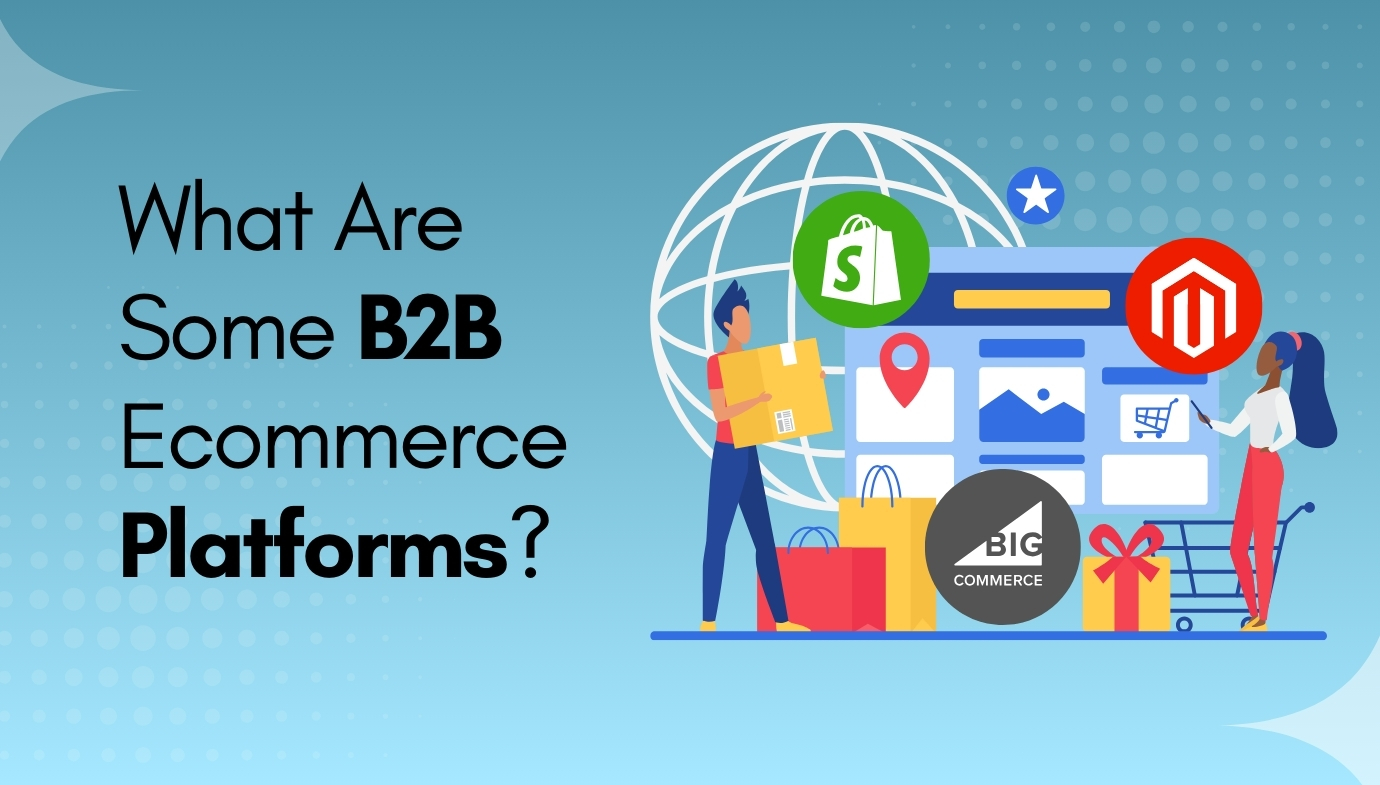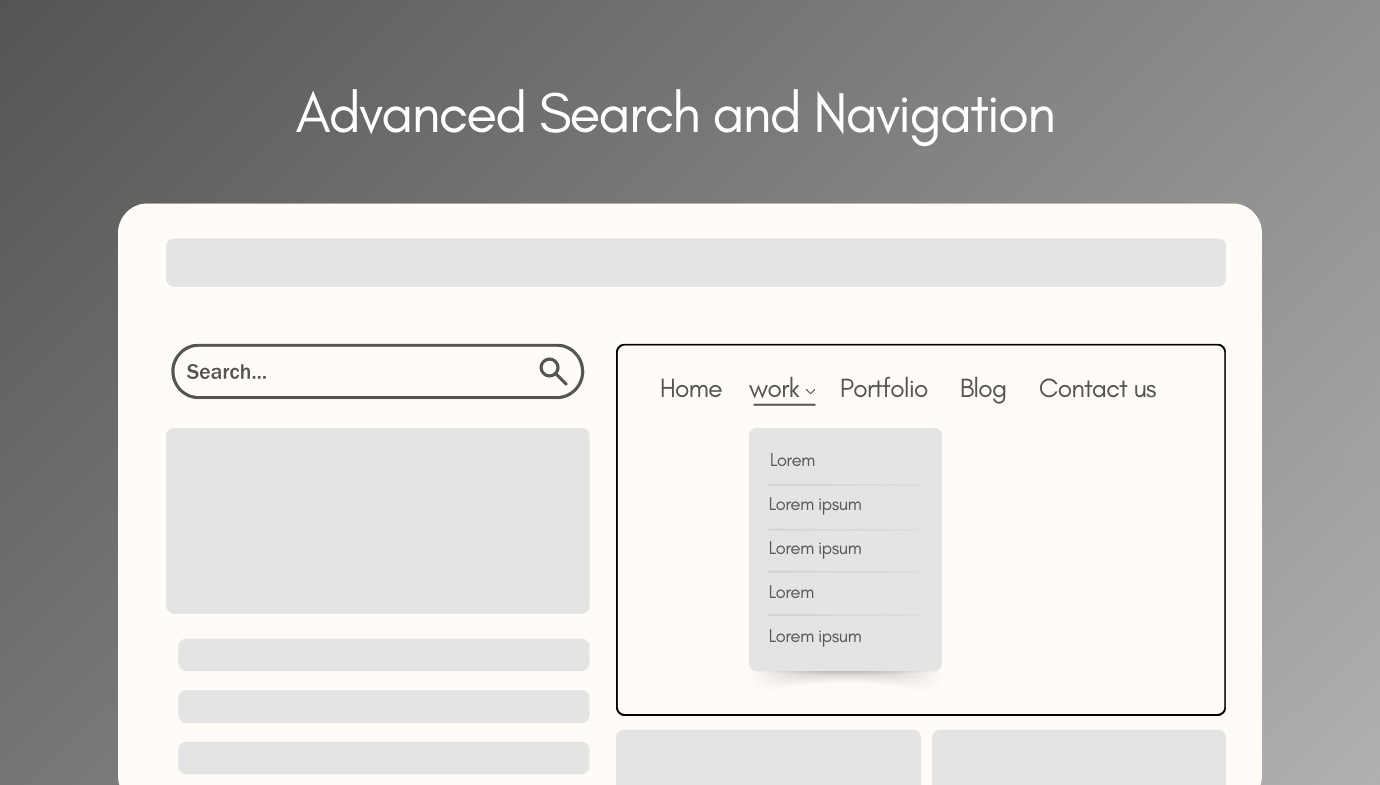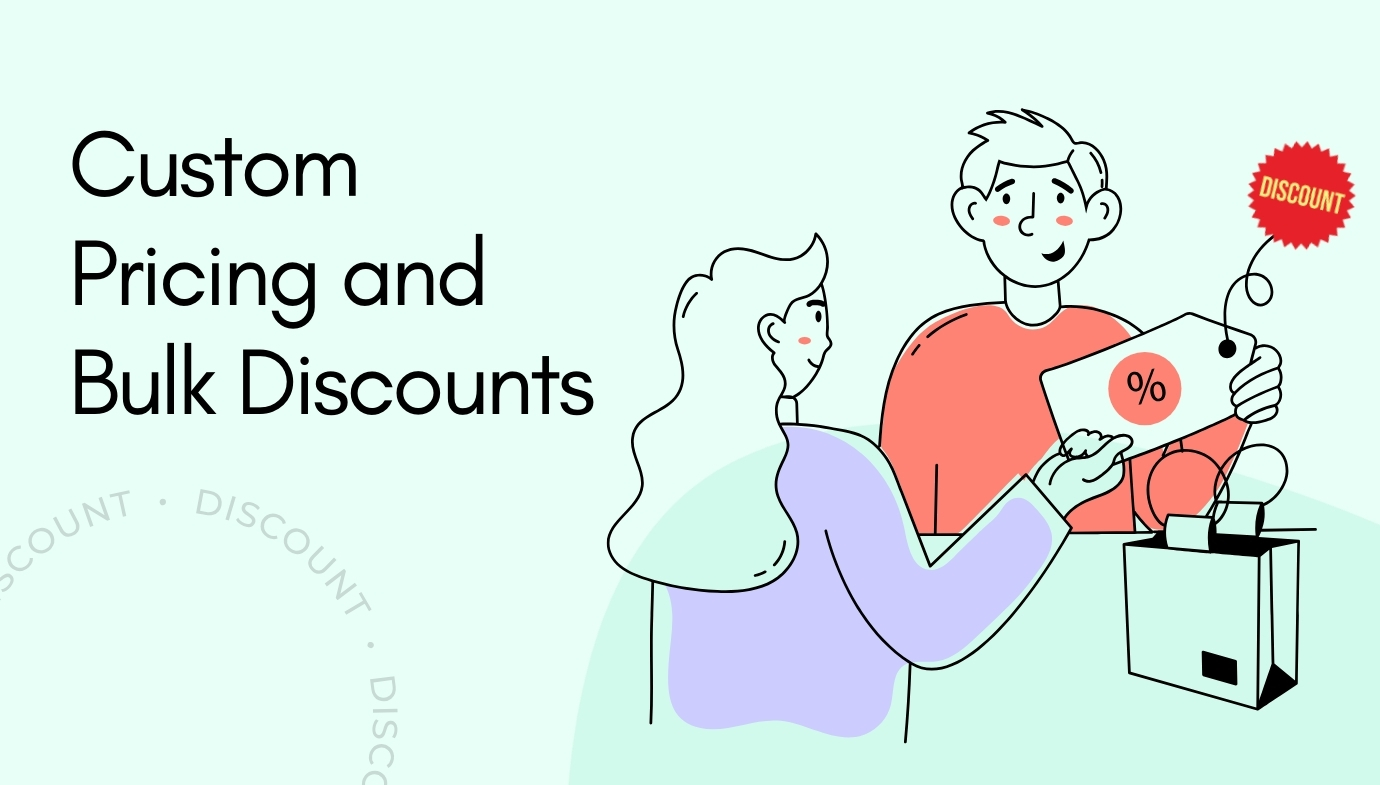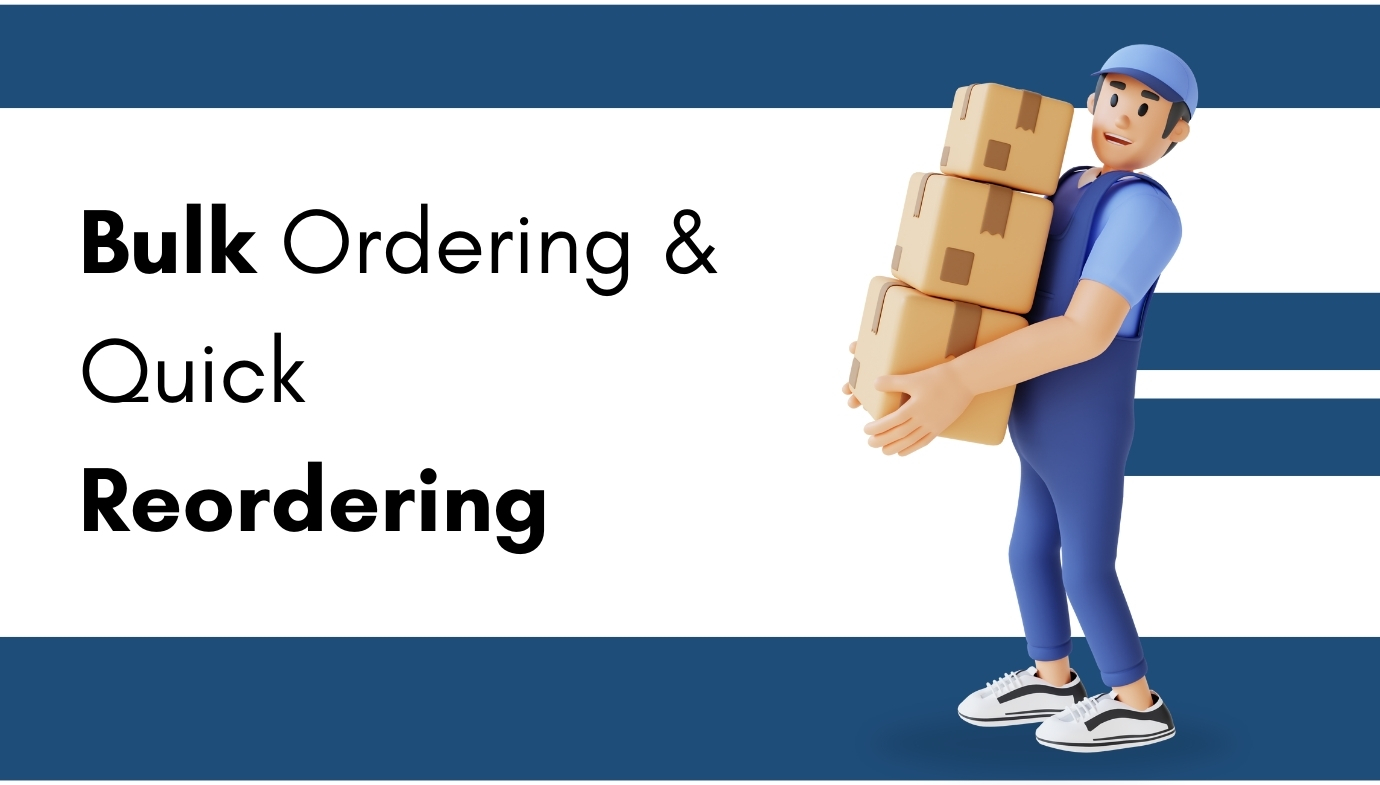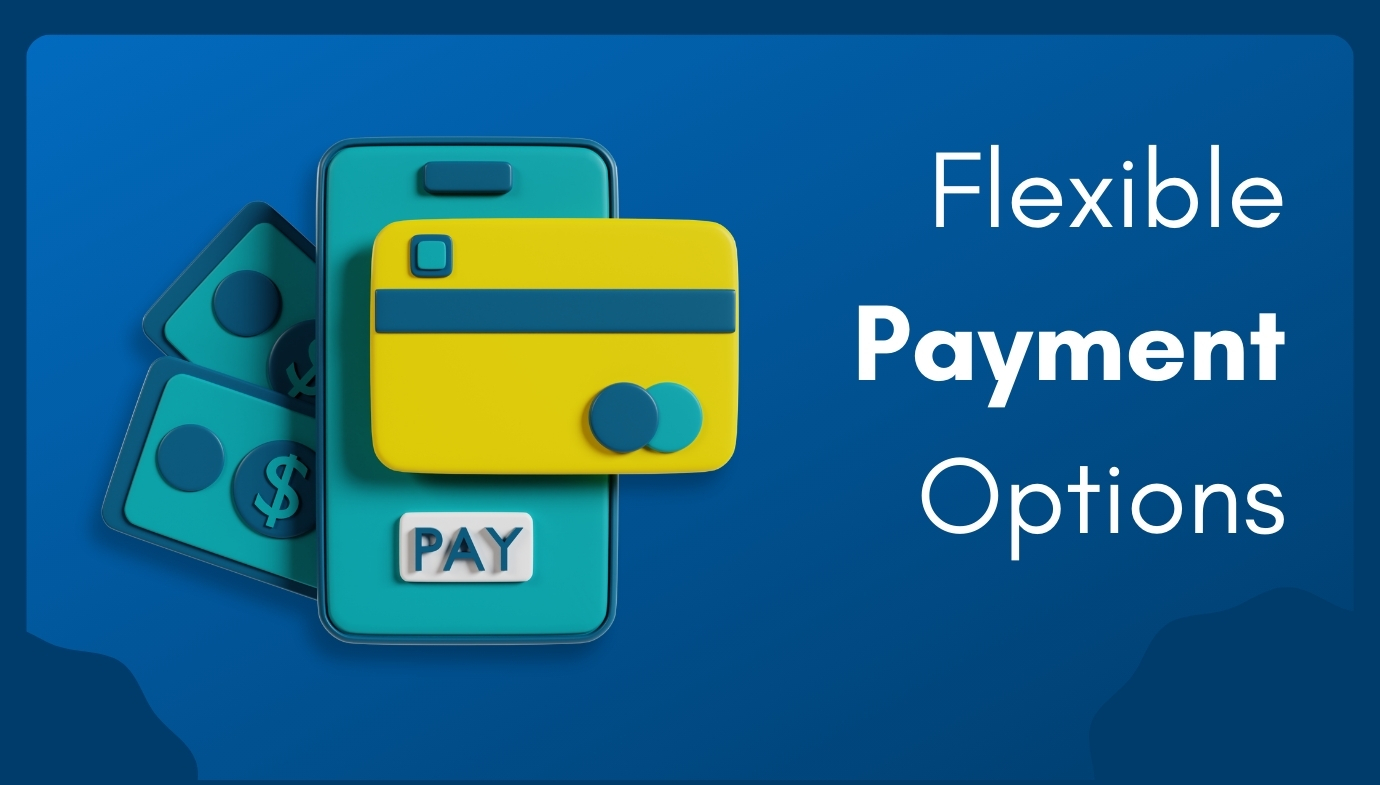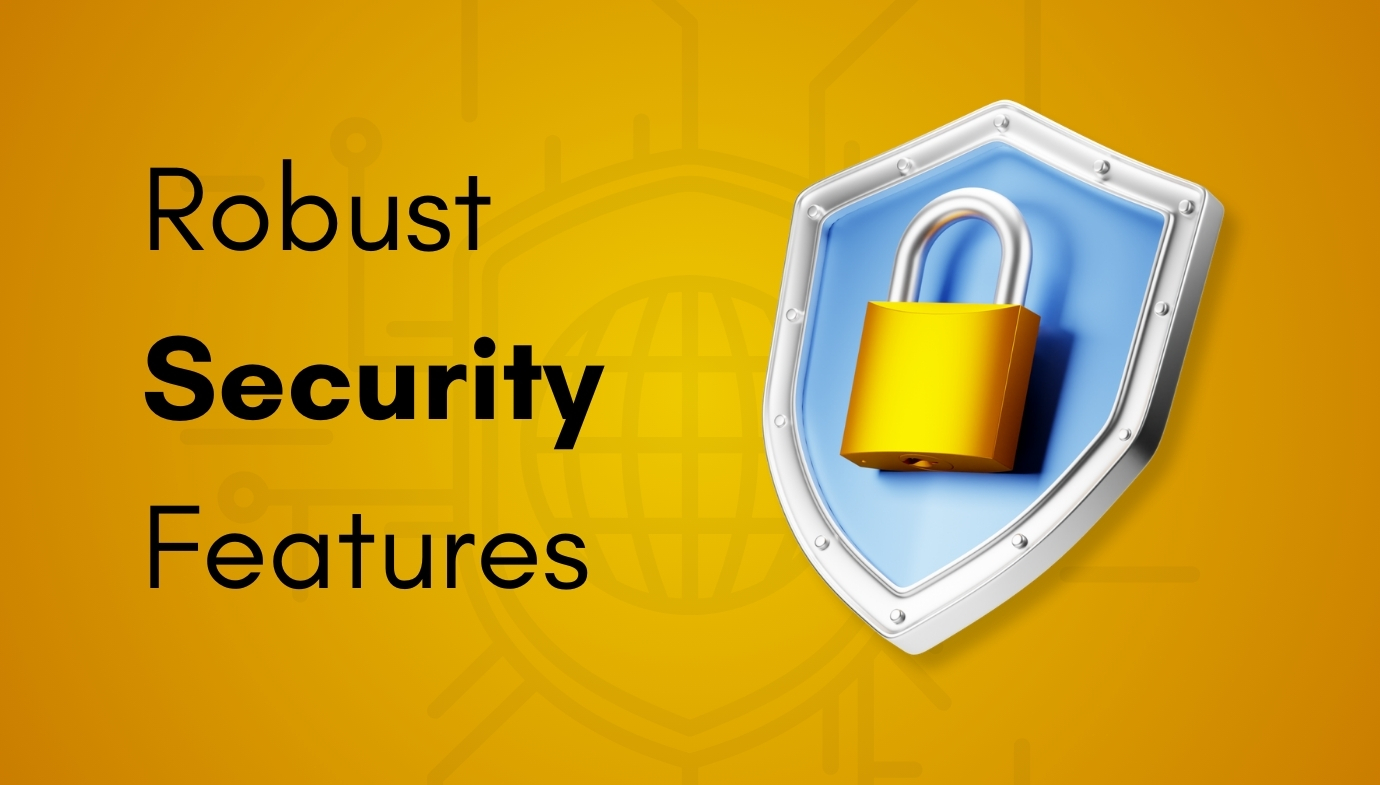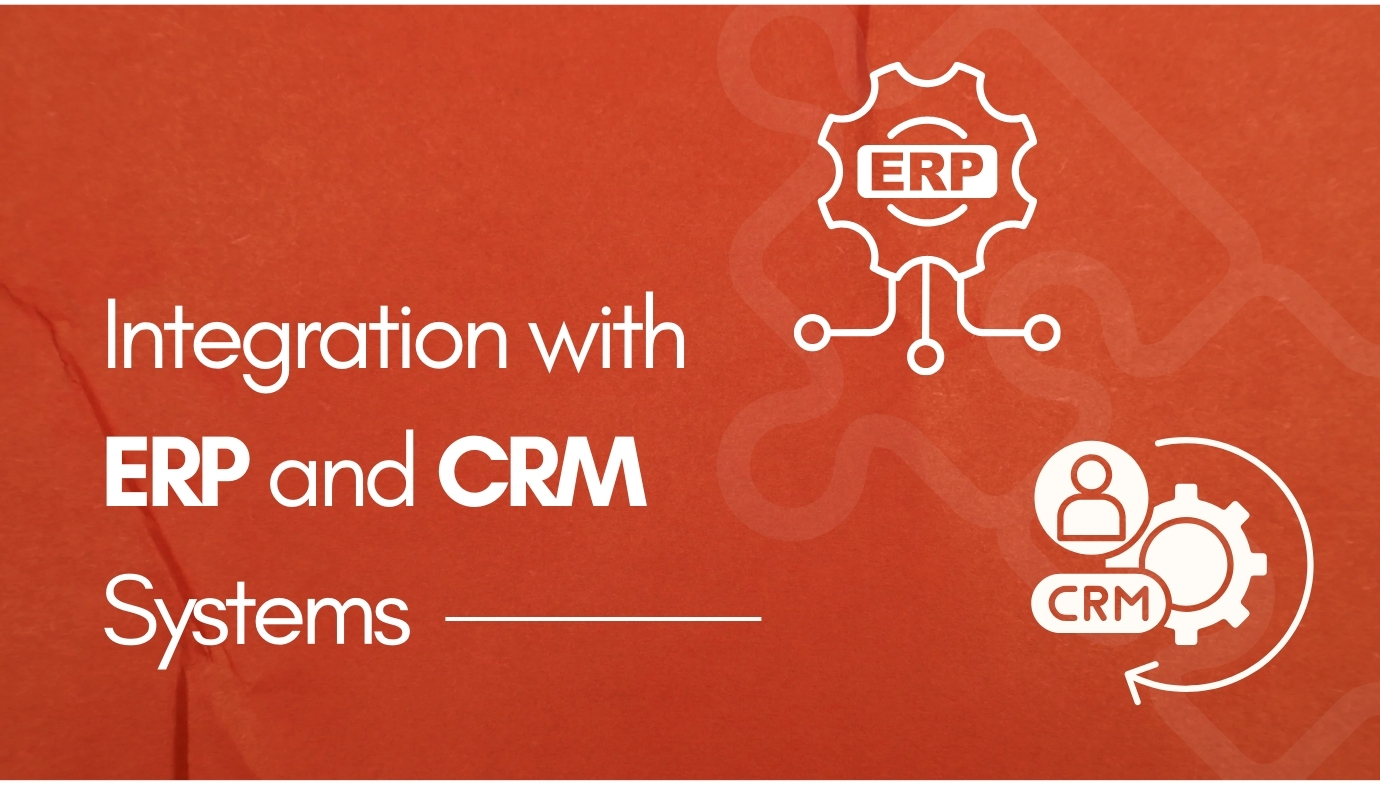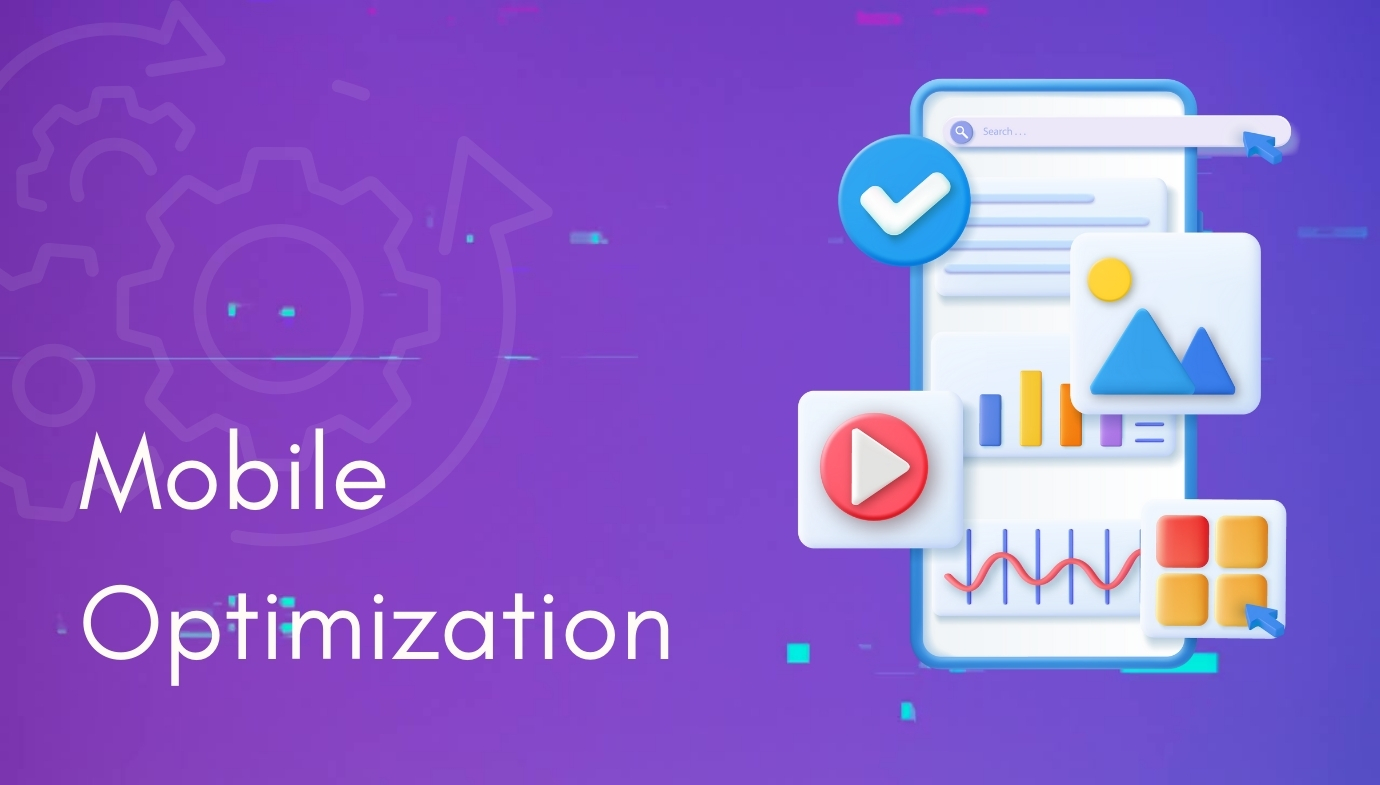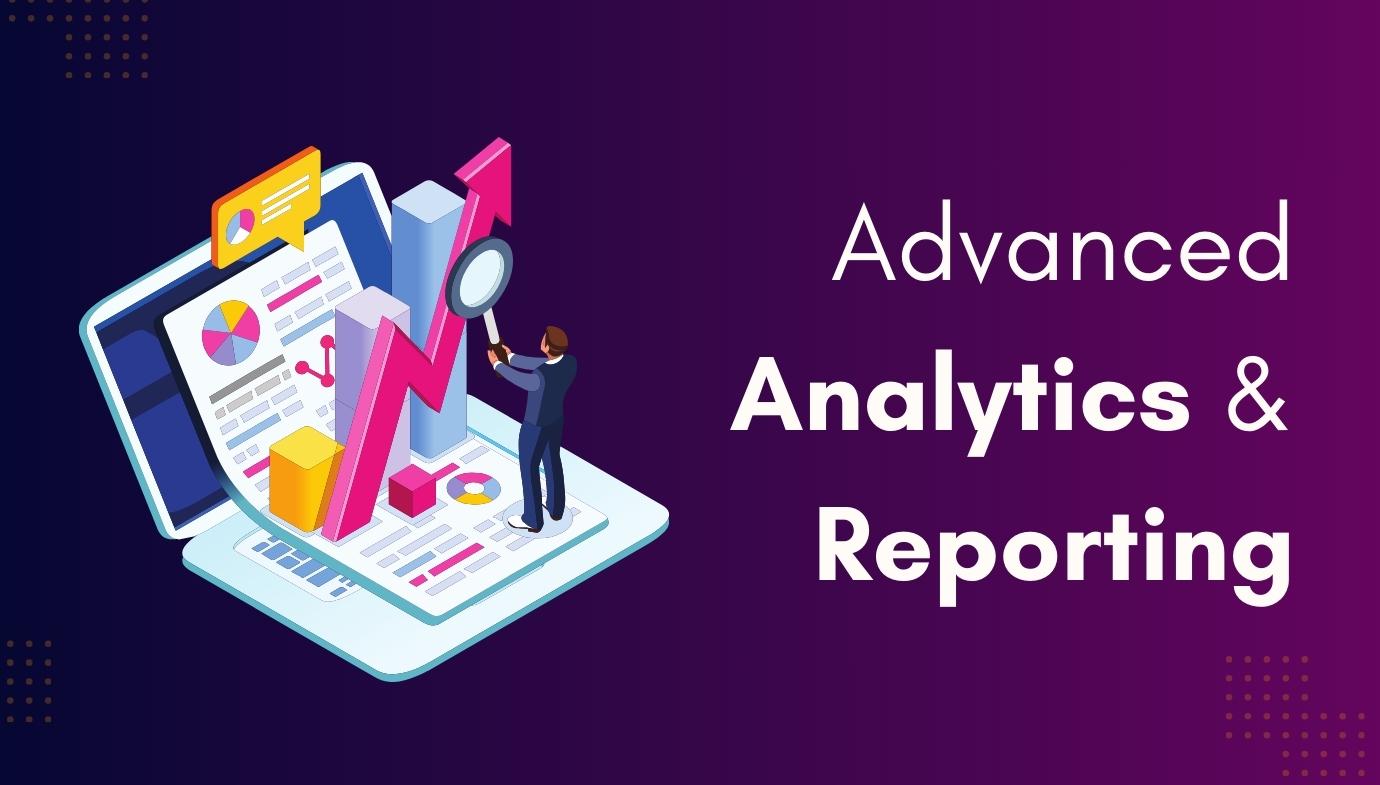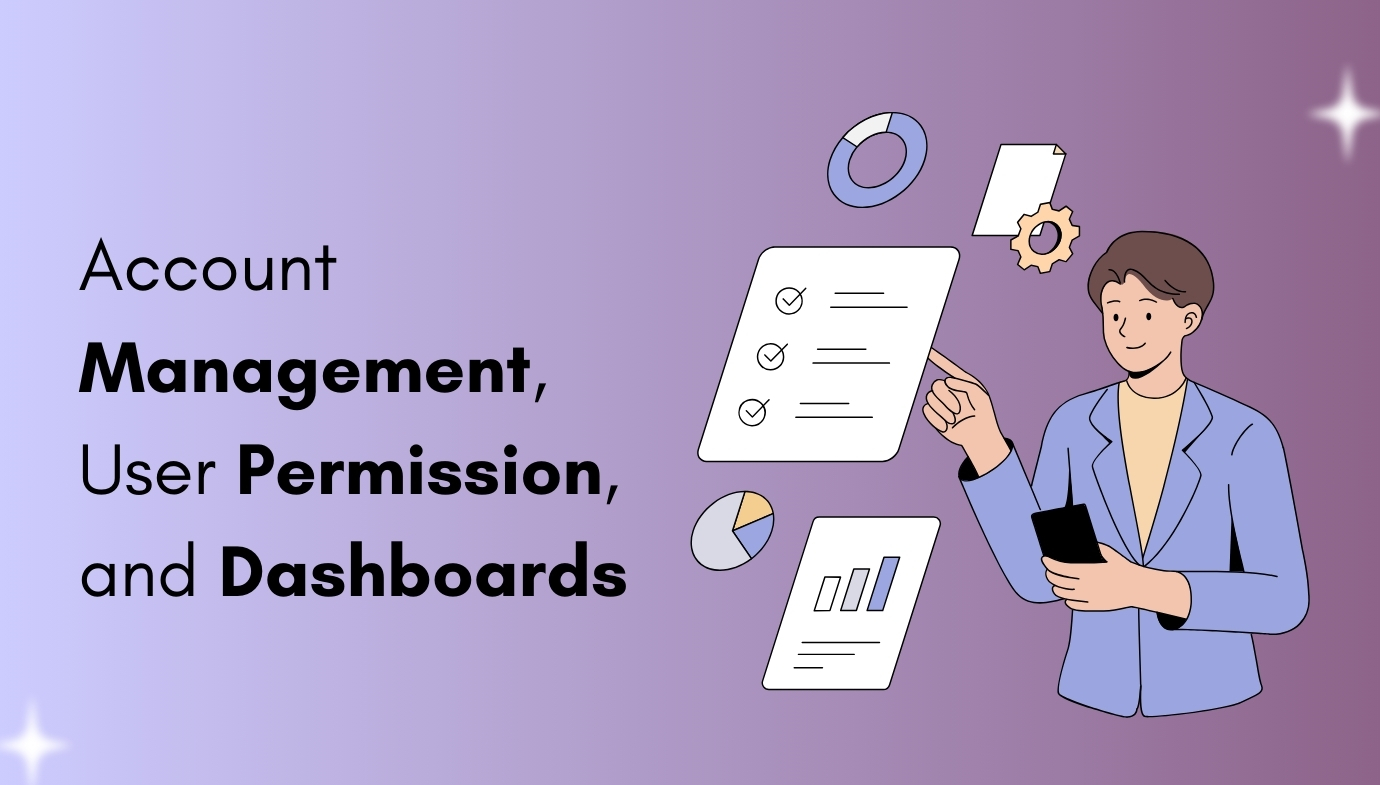The B2B e-commerce market is booming, with a projected 18.7% CAGR and an estimated global B2B eCommerce market value of over $25.65 trillion by 2028.
To capitalize on this growth, businesses need a robust e-commerce platform that addresses unique B2B use cases. From flexible payments and bulk orders to shared shopping carts and portal customization, the right features can make all the difference in optimizing customer experiences, streamlining workflows, and ultimately driving significant revenue growth.
In this blog, we will explore the must-have features of a B2B eCommerce platform to meet the evolving demands of B2B customers and harness the full potential of the booming B2B online market.
Here is a quick summary of what will be covered in this article:
- What exactly B2B eCommerce is?
- Cover some major B2B Ecommerce platforms out there
- Essential features of b2b e commerce websites need to capitalize on this explosive growth
- Help you find the perfect fit for your B2b business.
This comprehensive checklist will guide you in making the best decision for your business.
What Is B2B Ecommerce?
B2B (business-to-business) eCommerce is when one business buys or sells products or services from another business online through online digital channels. Key Characteristics of B2B eCommerce:
- Business-oriented: Involves transactions between businesses (such as manufacturers, distributors, wholesalers, and retailers), rather than between a business and an individual consumer.
- Online platform: Transactions are done through online digital channels, such as websites, online marketplaces, or mobile applications.
- Bulk purchases: Involve large quantities of goods or services being purchased or sold.
- Others: B2B eCommerce often involves sales cycles, complex pricing, multiple stakeholders, more complex logistics, and higher costs.
According to the report by Facts & Factors, the worldwide B2B digital commerce market is worth six times as much as the B2C market.
Examples: Major players in the B2B eCommerce market are Amazon, Grainer, Ferguson, Alibaba, Global Sources, Quill, Walmart, and many more.
What Are Some B2B Ecommerce Platforms?
There are several B2B eCommerce platforms available in the market, each offering a range of features tailored to the needs of different businesses. Here are some of the leading B2B eCommerce platforms:
1. Magento:
- An Adobe-owned platform built on open source technology offering robust B2B features.
- Known for its flexibility and scalability.
- Good Customer Support
- Friendly User Interface
- Magento b2b offers extensive customization options
- Advanced inventory management
- Integration with various third-party applications.
2. Shopify:
- Shopify is an all in one cloud based platform that caters to high-volume businesses.
- It offers powerful analytics and robust security features.
- Good Integrations
- Its multi-channel selling capabilities make it a strong contender in the B2B space.
3. BigCommerce:
- BigCommerce is a flexible & scalable platform that effortlessly supports both B2B and B2C eCommerce.
- Comprehensive solution with solid functionality
- It offers a range of built-in features, including custom pricing, bulk ordering, and advanced shipping options.
Best Features of Ecommerce Platforms
Let’s understand the top must have b2b e-commerce features that cater to the unique needs of B2B buyers.
1. Advanced Search and Navigation
Why It Matters: In B2B, catalogs are often vast and complex. An advanced search and filtering system helps users quickly find the products or services they need, improving the overall shopping experience.
| Key Elements | Auto-suggest, faceted search, and customizable filters. |
| Advantages | Promote upselling, cross-selling, boost sales, improve user experience |
Example: Grainger offers a robust search function that includes auto-suggestions, category filters, and detailed product specifications to help customers quickly find industrial supplies from a massive catalog.
2. Custom Pricing and Bulk Discounts
Why It Matters: B2B transactions typically involve negotiation, customized pricing and volume purchasing based on the relationship between the buyer and seller.
Custom pricing and bulk discount features allow businesses to offer personalized pricing based on the customer’s purchase history or order size. You should also offer personalized catalogs for different customer segments.
| Key Elements | Tiered pricing, dynamic pricing models, and automated discount application. |
| Advantages | Enhances the customer experience, and builds long-term relationships with your clients. |
Example: Alibaba allows sellers to set tiered pricing models where buyers can see discounts as they increase their order quantities. The platform also supports personalized pricing for regular customers.
3. Bulk Ordering and Quick Reordering
Why It Matters: B2B customers frequently purchase large quantities of products and often need to reorder the same items regularly. Your eCommerce website should facilitate easy bulk ordering with features like bulk upload, order templates, and quick reordering options.
Combining bulk ordering and quick reordering features ensures that businesses can efficiently manage large orders and easily restock supplies. This saves time, reduces the risk of errors, and streamlines the procurement process.
| Key Elements | Bulk Order Forms, Order History Access, Saved Carts, Auto Reorder Options |
| Advantages | Saves time, reduces the risk of errors, and streamlines the procurement process. |
Example: Uline offers a bulk ordering tool where customers can enter item numbers and quantities directly into a form, making it easy to add large numbers of products
to the cart at once. This feature is ideal for businesses that regularly order the same products in bulk.
4. Flexible Payment Options
Why It Matters: B2B transactions often involve larger sums of money, and businesses may require various payment options, including purchase orders, bank transfers credit terms, and invoicing.
Your platform should support multiple payment methods and allow for payment customization based on customer needs.
| Key Elements | Third Party payers, credit lines, and support for multiple currencies and payment gateways. |
| Advantages | Increase the possibility of purchase, improve cash flow, and reduce cart abandonment. |
Example: Amazon Business provides multiple payment options, including extended credit terms, corporate credit lines, and support for various currencies, catering to global businesses.
5. Robust Security Features
Why It Matters: Security is a top concern in B2B eCommerce, especially given the sensitive nature of the transactions.
Your website must include robust security features, such as SSL certificates, two-factor authentication, and encryption, to protect customer data and ensure compliance with industry standards.
| Key Elements | SSL certificates, two-factor authentication, regular security audits and encryption. |
| Advantages | Protects sensitive customer data, prevents cyber threats, and reduces losses. |
Example: Salesforce Commerce Cloud offers enterprise-grade security features, including two-factor authentication, data encryption, and compliance with industry standards like GDPR and CCPA, ensuring that B2B transactions are secure and compliant.
6. Integration with ERP and CRM Systems
Why It Matters: For seamless operations, your B2B eCommerce platform should be open for real time integrations with ERP, CRM, Accounting, and other 3rd party tools & extensions.
| Key Elements | Real-time data synchronization, API integrations, and custom connectors. |
| Advantages | Ensures that your sales, inventory, and customer data are synchronized, reducing the risk of errors and improving efficiency. |
Example: Magento Commerce integrates with popular ERP systems, allowing businesses to sync product data, inventory levels, and customer information seamlessly between their eCommerce platform and back-office systems.
7. Mobile Optimization
Why It Matters: Decision-makers often need to access the eCommerce platform on the go. A mobile-optimized site ensures a seamless experience across all devices.
| Key Elements | Responsive design, mobile-friendly navigation, and mobile payment support. |
| Advantages | Customers can easily access and navigate the website on mobile devices, increasing convenience and driving sales. |
Example: Alibaba’s mobile-optimized website allows customers to quickly discover and purchase products from verified suppliers across various industries on the go, enhancing their overall B2B shopping experience.
8. Advanced Analytics and Reporting
Why It Matters: Data-driven decision-making is key to the success of any business.
Your B2B eCommerce platform should offer advanced analytics and reporting features, allowing you to track customer behavior, preferences, sales trends, purchasing patterns, and inventory levels. This data can help you make informed decisions and optimize your business strategy.
| Key Elements | Customizable reports, real-time analytics, and integration with BI tools |
| Advantages | Optimize performance, help to make informed decisions, enhance customer satisfaction and loyalty, drive revenue growth and competitiveness in the market. |
Example: Magento provides advanced analytics tools that offer insights into customer behavior, product performance, monitor sales, store performance, and inventory
management.
9. Personalized Marketing
Why It Matters: Personalization is becoming increasingly important in B2B eCommerce. B2B buyers expect personalized experiences, just like B2C customers.
Your website should offer features like personalized product recommendations, tailored content, and customer-specific promotions to enhance the shopping experience and drive customer loyalty.
| Key Elements | Segmentation, personalized email campaigns, and targeted product recommendations |
| Advantages | Tailored experiences, increased conversions, enhanced user experience, increasing customer satisfaction and loyalty. |
Example: Industrybuying, a leading Indian B2B marketplace for industrial supplies, uses personalization to offer customized product recommendations and tailored content, enhancing the overall buying experience for its customers.
10. Account Management, User Permission, and Dashboards
Why It Matters: B2B buyers need a platform that allows them to manage their accounts, view order history, track shipments, and reorder products easily.
These features enable businesses to provide personalized account management, tailored
insights, streamlined ordering, and secure access control for their customers.
| Key Elements | Customizable dashboards, Order tracking, Role based access, Analytics & Insights, and much more. |
| Advantages | Personalized Experience, Streamlined Ordering, Secure Access Control |
Example: Udaan’s customer-specific dashboards allow businesses to manage their accounts, track orders, and access personalized product recommendations, simplifying their procurement process and improving supply chain efficiency.
OFBusiness, a leading Indian B2B ecommerce platform for industrial goods and supplies, offers customer-specific dashboards, account management, and user permission access.
This enables businesses to manage their accounts, track orders, access personalized product recommendations, and control user access to sensitive information and features, ensuring a secure and personalized experience.
B2B Ecommerce Platform-Wise Comparison Chart
| Feature | Magento | Shopify | BigCommerce |
| Custom Pricing and Catalogs | Yes | Yes | Yes |
| Bulk Ordering and Quick Reordering | Yes | Limited | Yes |
| Advanced Search and Navigation | Yes | Yes | Yes |
| Flexible Payment Options | Yes | Yes | Yes |
| Robust Security Features | Yes | Yes | Yes |
| ERP and CRM Integration | Yes | Limited | Limited |
| Mobile Optimization | Yes | Yes | Yes |
| Advanced Analytics and Reporting | Yes | Yes | Yes |
| Personalized Customer Experience | Yes | Yes | Yes |
| Order Approval Workflows | Yes | Limited | Limited |
Get Started On Your Journey of B2B Ecommerce with Rock Technolabs
Choosing the right b2b ecommerce platform features, strategy and technical partner is very important for the success of your online business.
The platforms we’ve discussed—Magento, Shopify, BigCommerce – are all strong contenders in the B2B space, each with its strengths.
And now when you have the top list of B2B ecommerce features, we hope you get a better understanding of all the above listed features and how they help to improve the bottom line of your business.
But if you still have any doubts, then you can hire a developer who will guide you through all the features of B2B eCommerce.
Partner with Rock Technolabs for Magento B2B Development or Shopify Development Services and take the first step toward transforming your B2B eCommerce strategy.


